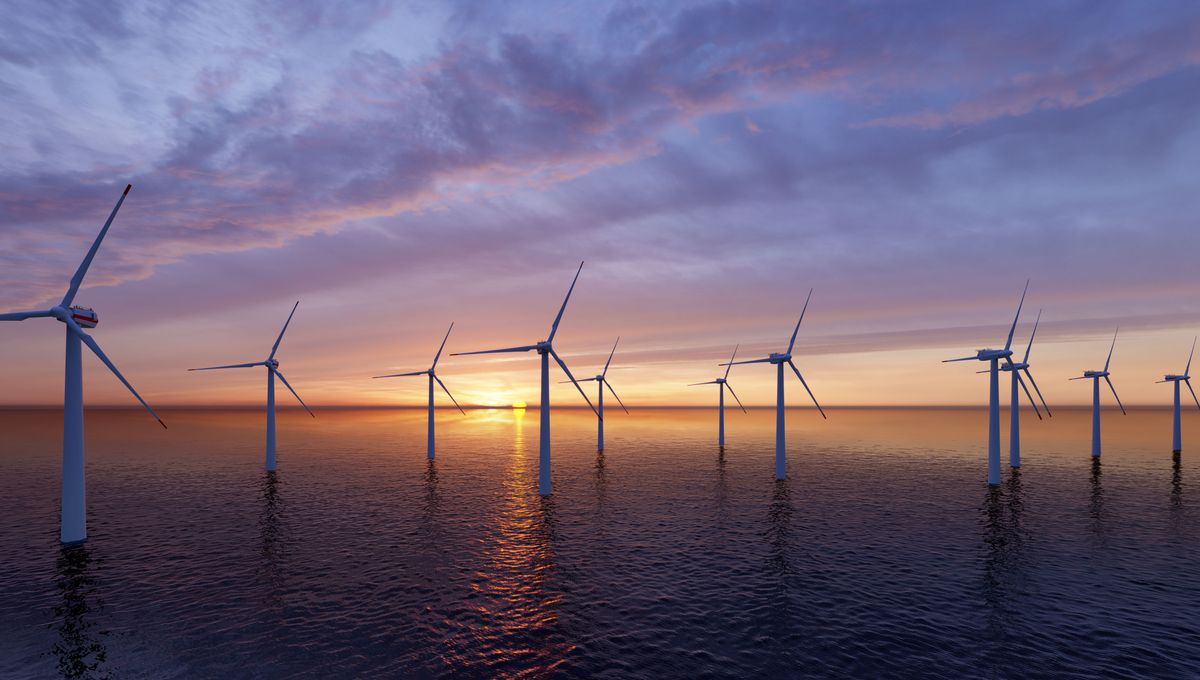
Offshore wind farms are a valuable source of renewable energy and a crucial weapon in our arsenal in the fight against the climate crisis, but is this at the expense of marine mammals? President-elect Donald Trump suggested so in a recent press conference – though, not for the first time, his statements lacked credible backing and experts disagree.
Speaking in Mar-a-Lago on Monday, Trump rallied against the renewable technology: “The windmills are driving the whales crazy. Obviously,” he said, while referencing recent whale strandings in Massachusetts.
This is not the first time the next President of the United States has spoken out against wind turbines. Trump has a long history of opposition to wind power, and on the campaign trail in 2023, made similar claims that offshore wind farms kill whales. These assertions were not backed up by evidence then, and they’re not now.
Are offshore wind farms killing whales?
In short, the answer to this question is no.
It is true that there has been an unusually high number of whale (and dolphin) strandings along the south coast of Massachusetts in the last year. In December, Whale and Dolphin Conservation reported a sixth large whale stranding in the area in just six months – an occurrence they describe as “unprecedented”.
Meanwhile, a juvenile humpback whale was stranded along Richmond Pond Beach in Westport last week – “the 13th whale that has washed up dead in the past three weeks from Massachusetts to Kitty Hawk North Carolina,” Constance Gee of Green Oceans told WJAR.
According to the National Oceanic and Atmospheric Administration (NOAA), since 2016, there have been a total of 232 humpback strandings along the country’s east coast, from Maine through Florida. In 2017, the agency dubbed it an “Unusual Mortality Event”.
Crucially, though, none of these deaths are linked to offshore wind farms.
As of 2024, no US whale death has been attributed to offshore windmills, per the NOAA. “At this point, there is no scientific evidence that noise resulting from offshore wind site characterization surveys could potentially cause whale deaths. There are no known links between large whale deaths and ongoing offshore wind activities,” the agency said in its latest update in March last year.
Their examinations indicate that the main reasons for strandings along the Atlantic coast are accidental entanglements in fishing gear and vessel strikes, with other causes of death including parasite-induced organ damage and starvation.
“We know what the main threats are to humpback whales: it’s very much the impact from things like fishing and ship strikes,” Rob Deaville from the Zoological Society of London’s Cetacean Strandings Investigation Programme told the BBC in 2023.
“To talk about wind farms being a problem takes away discussion around the very real threats that are a problem for those species.”
In fact, with roughly 40 percent of global bulk shipping now devoted to moving coal, oil, and gas, renewable energy sources surely stand to reduce the risk that ships pose to whales, while also benefiting the climate.
How do wind farms impact marine mammals?
All that being said, offshore wind farms can still potentially impact marine life in a number of ways. Ecological effects of such projects include: altering the soundscape, hydrodynamics, and electromagnetic fields of natural habitats, which could affect animal behavior. Things like navigation, predator detection, communication, and the ability to find a mate could all be thrown into disarray as a result.
Wind turbines may also shake ecosystems up by altering the abundance and diversity of some marine species.
It’s not all bad news, though: there is some evidence to suggest that offshore windmills could act as a foraging ground for seals, which appear to be drawn to the hulking blocks of metal in their habitats.
Woods Hole Oceanographic Institution whale biologist Mark Baumgartner is optimistic about their impact, telling Oceanus Magazine “I’m a little skeptical that this is going to be a major problem for whales, given that yes, there are going to be a lot of turbines out there. But given the spacing – the large area over which they are distributed – I’m not convinced that this is going to be a major problem for algae and copepods and right whales.”
While wind power certainly has some drawbacks, it has not been linked to whale deaths, despite what some politicians might be saying. It’s an inescapable fact that wind, and other renewable energy projects, represent a key chunk of our response to climate change – so, hopefully, they can continue to play their part in helping protect our planet and the misinformation storm swirling around them will cease.
All “explainer” articles are confirmed by fact checkers to be correct at time of publishing. Text, images, and links may be edited, removed, or added to at a later date to keep information current.
Source Link: Are Offshore Wind Farms Actually Harming Whales?